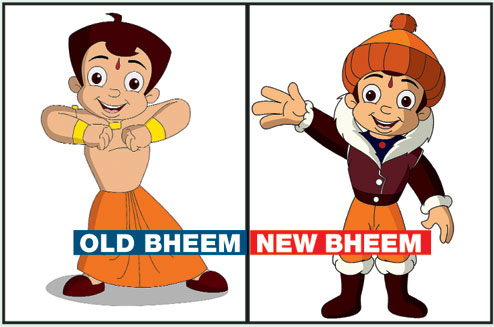
This is an era when every chief minister would love to declare their state open defalcation-free (ODF).
District magistrates across the country vie with each other to clinch the tag. It is an integral part of PM Modi's Swachhta Mission. But in 1974, when Bindeshwar Pathak, the founder of Sulabh International, thought of introducing the first public toilet at Gandhi Maidan, people laughed at him. "They told me that when people here do not even pay for bus and train rides, how did I expect them to pay for defecating," recalled Pathak.
He said even policymakers were reluctant to accept his idea. "They told me that I could discuss the issue after they had sipped their tea else, the taste of their tea would get bitter," he recalled. When the first public toilets in India came up in Patna at a charge of 10 paise per person, 500 people used it on the first day.
The rest, as they say, is history.
Today, over 100 corporate companies have joined hands with Sulabh International and the NGO is working in South Africa, Ghana and some other countries. It employs close to 60,000 people. "In India, we are everywhere except Nagaland," Pathak said. He is the only South Asian in whose name a day was proclaimed by the mayor of New York, Bill de Blasio - April 14, 2016. The original creator of public toilets and swachhata shares his views with Dipak Mishra.
• Every district of the country is clamouring to be declared ODF. But even after declaration, it is found that 100 per cent has not been achieved. Where do you think the problem lies?
Till date, my organisation has built 1.5 million individual toilets and about 9,000 public toilets. You show me one that is not functioning. There are four components in making toilets - design, estimate, delivery and one year's time. Agencies should service toilets free of cost for at least a year and ensure they are functional. I think that the beneficiaries should be given a choice of design also instead of offering him one design. We have 20 designs each made to suit the local requirement and pocket of the beneficiaries.
• There is a perception that India cannot be ODF because Indians are not attuned to clean habits.
It is partially true. But one must understand that it has its roots in our caste system. The caste originates from the work undertaken by individuals - Brahmins, Kshatriyas, Vaishyas and Dalits. Even among Dalits, not all Dalits were not untouchables. The untouchables were those who cleaned the toilets, gutters and dirt of towns. Over 99.9 per cent of the population depending on 0.1 per cent to clean up their mess. That mentality still continues.
• Your work is not only about making toilets It is about ending human scavenging, a system prevalent for 5,000 years.
During the late-1960s, I stayed in a colony of scavengers in Bettiah for three months. I remember a boy of the community was attacked by a bull. People rushed to help him but withdrew the moment they realised he belonged to the scavenger community. We did take him to the hospital but by that time, he had died. The incident shook me to the core of the heart. You expect a community to clean up the whole mess yet refuse to give them respect and human dignity.
• You have an establishment in Rajasthan's Alwar, where you have trained women belonging to the scavenger community. You even had taken walk on a ramp in a UN function.
Several of them have become beauticians. I found one of them twitting the cheeks of her customer after she completed her job. I asked her why. She replied that she wanted to remind her customer the way she was treated when she was a scavenger - not allowing her even to drink water in the house and not even touching her. I tell the community to become Brahmins by their work. If religion can be changed, why not caste? I run a school in Delhi in which 60 per cent of the children belong to the same community. English is compulsory. You cannot have Dalits being taught in the vernacular language and others in English. Politicians are always promising jobs to them when there are no jobs. I find well-qualified youths of the community jobless. Instead, train them so well that they can stand on their own feet.
• Do you think the present PM gave a boost to toilet construction in his Swachhta Mission.
Mahatma Gandhi spoke about toilets and cleanliness most of the time. Nehru, Manohar Lohia, Indira Gandhi, Rajiv Gandhi, Manmohan Singh , Raghuvansh Prasad Singh, Vajpayee and many others talked about the need for sanitation and did their bit. But PM Modi has given a major boost by embracing it in his Swachhta Mission.
• After constructing toilets, what is the next step?
Construction of toilets at home is just the beginning of the beginning. Most of the shops and business establishments don't have toilets. You can go and buy or eat anything in shops in India but you will not get a toilet. Owners of dhabas, who earn in lakhs, do not even bother to make toilets. I think making toilets for customers should be made compulsory.
• You bagged so many national and international awards. But it appears you did not get due recognition in your home state, Bihar.
It may be true but I have moved ahead. Human scavenging is almost over. It was a practice going on for around 5,000 years. I would like to think I have turned a page in India in its history of sanitation.










